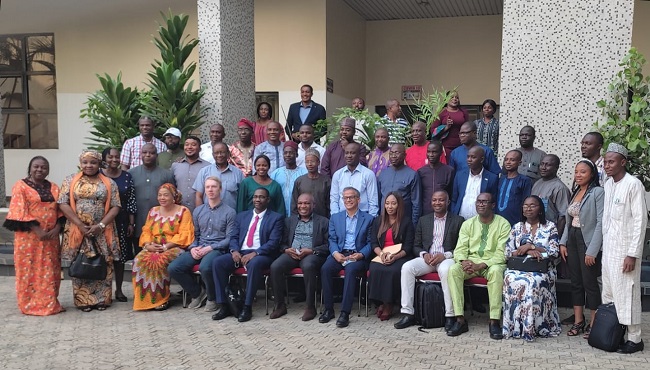The REDD+ finance framework for the Nigeria Forest Carbon Offset Crediting System (NFCOCS) provides the structure upon which to create financial value for carbon stored in forests by using market approaches to compensate relevant parties for not clearing or degrading their forests through the REDD+ mechanism.

Dr Eugene Itua, CEO of Natural Eco Capital, who made this submission at the “Stakeholders’ Validation Workshop of the National Forest Monitoring System & Finance Framework for Carbon Offset & Carbon Credit for Nigeria” in Abuja on Tuesday, April 12, 2022, listed the relevant parties to include jurisdictions/subnational, landowners and project developers.
According to him, the framework is not a detailed “how to” technical manual, but rather it provides an understanding of the key elements relating to how Nigeria can achieve generated emission reductions as a basis for offset sales or results-based payments.
In a presentation, he said: “This framework for NFCOCS does not claim to provide answers to all dimensions of what is needed but provides the basis for understanding the key elements and meeting the key objectives that will inform REDD+ decision makers and interested stakeholders about critical issues in the journey of REDD+ result -based payments, in relation to the carbon markets.
“Specifically, the framework which was designed based on a wide-ranging review of existing works on carbon offset and interaction with some key stakeholders does not claim to address all circumstances in which forest carbon projects can take place in Nigeria.”
He stressed that Nigeria’s REDD+ programme is implemented at both the national and subnational levels, and that the framework thus acknowledges the need for the government to control international ER transactions and link them to national performance, especially in meeting the targets and commitments of the nation’s Nationally Determined Contribution (NDC).
Referring to the Nesting Approach, he stated: “A well-designed nesting system aligns public policies and accounting frameworks with private projects that seek to avoid deforestation. The nesting approach recognises the existence of project investments and acknowledges their contribution to realising the mitigation potential of forests in support of meeting climate goals.
“It will ensure alignment of GHG accounting at various scales which will strengthen the credibility of the ERs generated at the jurisdictional and project levels. This will require a strong MRV that reflects the GHG performance of the projects and programmes that are embedded in the national system.
“This will also require, amongst others, adherence to Nigeria’s FREL as the performance benchmark at all levels to achieve consistency, monitoring of performance (ERs) against the FREL and monitoring performance at the project scale in accordance with baselines outlined in the NFCOCS framework and specific protocols that will be chosen by programmes/projects.”
Speaking on “REDD+ Finance Strategy: Key Components and Financing Options for Nigeria”, Peter Graham of Messrs Climate Advisers stated that in the light of the fact that the National REDD+ Strategy cites the potential to mobilise over $100 billion annually across sub-Saharan Africa for climate finance, application to REDD+ would need to be combined with other underlying policy changes.
He urged the Nigeria REDD+ Programme to engage development banks such as the ADB and World Bank to explore synergies with REDD+ as part of their broader country priorities across environment, health, and economic themes.
“ECOWAS or the AU may not be a big source of funding, but engagement on policy could help mitigate cross-border impacts domestic policy,” he stated, adding that “Ecological Fiscal Transfers (EFTs) often involve distribution of public finances from national to state governments based on ecological indicators such as maintaining forest cover.”
